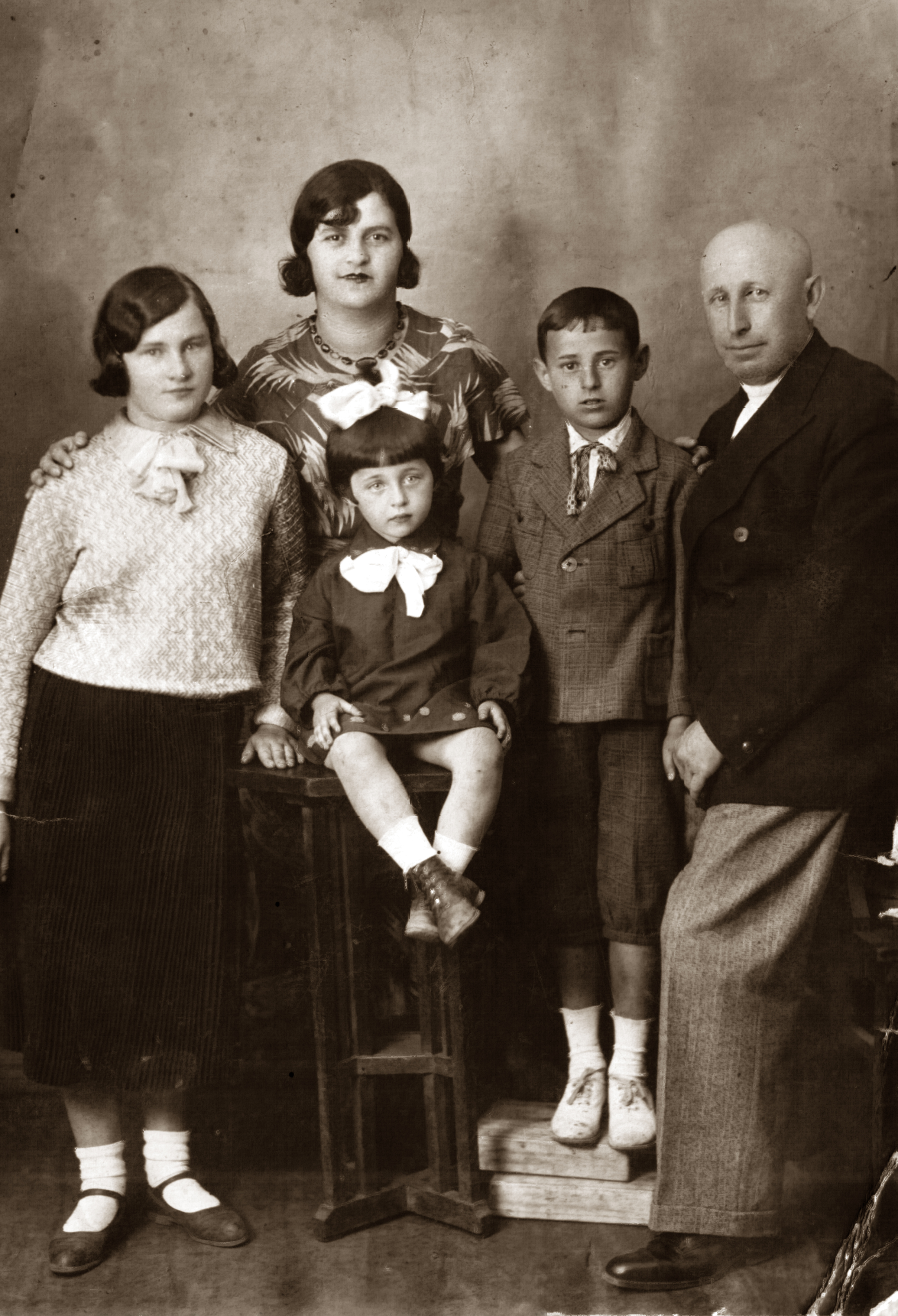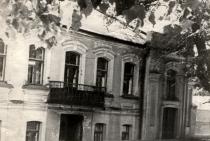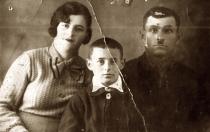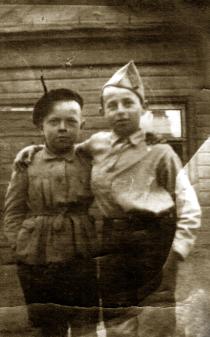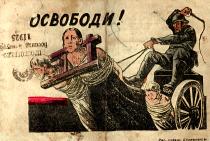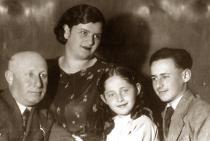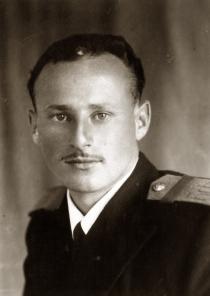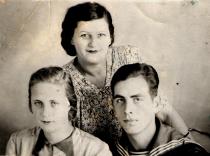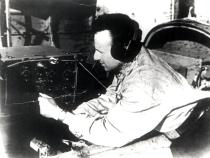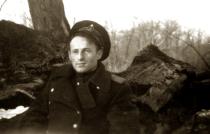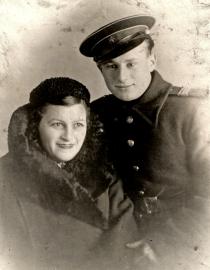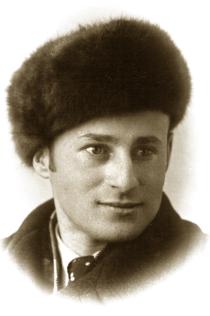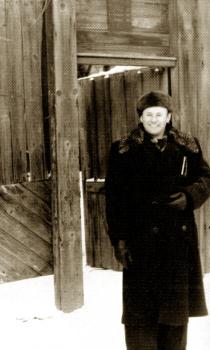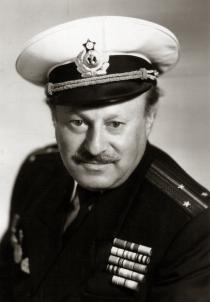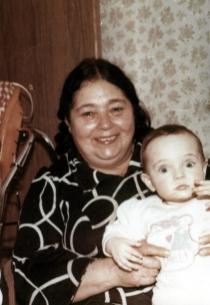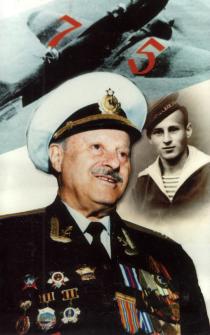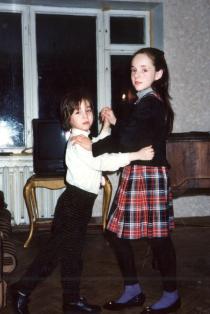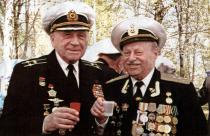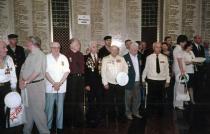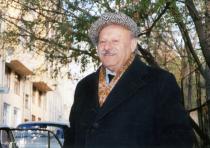This is our family. My maternal grandmother Enya asked us to take this picture. We sent her a copy to Kharkov. From left to right: Lidia Tsulimova, the foster child of my parents; her parents died during starvation; my mother Shifra Kravets, I, my father Solomon Kravets. My younger sister Rena is sitting in the center.
The picture was taken in Moscow in 1935.
My parents got married in 1921. Father was 30, and Mother was 17. Of course, they had a true Jewish wedding. After the wedding, my father rented two rooms with balconies on the second floor of the two-storied mansion of Doctor Rafalovich.
In a year my parents had their first-born, who died as an infant. I don't even know his name. Shortly after the birth of the baby, Father decided to leave Uman. These were the times of the NEP and my father was afraid that all rich people would be persecuted.
Father left for Moscow and found a job as an accountant. Mother temporarily stayed in Uman. When she found out that she was pregnant she decided not to stay in Uman and found money somewhere and went to Moscow. Father rented a room in a communal apartment on Arbat Street.
I was born on 4th January 1925.
When I was one and a half years old, we finally moved to Moscow. Father also took his son Lev, born in his first marriage, to Moscow. Neither I nor Lev knew that we had only a common real father.
We lived in the center of the city, not far from Arbat. Mother was discontent as she thought it was bad for the baby to live in the center of the city because of the smog and dirt.
She started asking Father to look for another apartment. Father found lodging for us and we moved to a Moscow suburb, Cherkizovo. Father rented two rooms in a private house.
The host's family also lived in that house with us. The house was sold several times, but we stayed there under all owners. In 1933 my sister was born. She was named Rena after our great-grandmother.
In 1932-33 there was terrible starvation in Russian villages, especially in Volga region. A lot of children became orphans. There were only two orphanages in Moscow, and there were much more orphans so there was an organization responsible for finding foster parents for the orphans.
Mother fostered a Russian orphan girl named Lidia Tsulimova, born in 1916. It was a foster-parent program. The children weren't adopted, the organization was merely guaranteed by parents that the orphans would be treated the same as their own children and wouldn't be used as servants.
I don't know what my mother's motivation was, as she had already three children after my sister was born. I know that father supported her idea as well. I knew that Lidia was not our blood, but my sister was sure that Lidia was her elder sister.
In our family there was a tradition of going shopping before Pesach. Each child got new clothes. Lidia was also given new things like the rest of us. We also had meals together. Lidia finished school and entered university, the social department. She worked as a historian in the Marx and Engels institute all her life.
